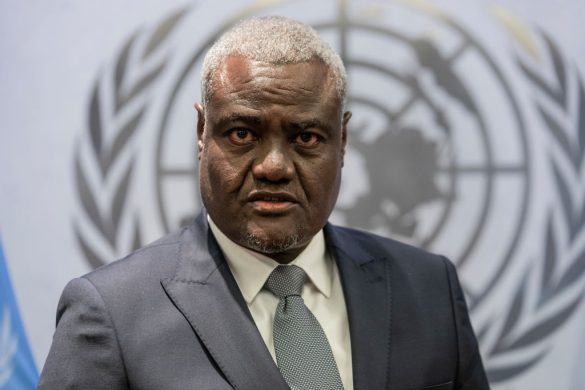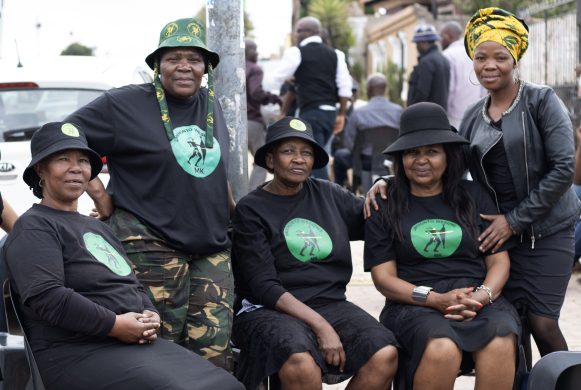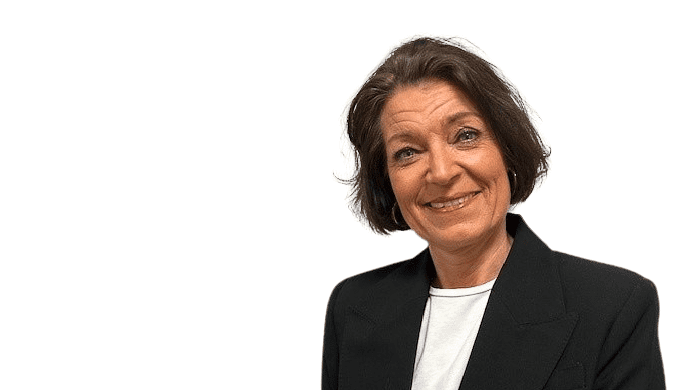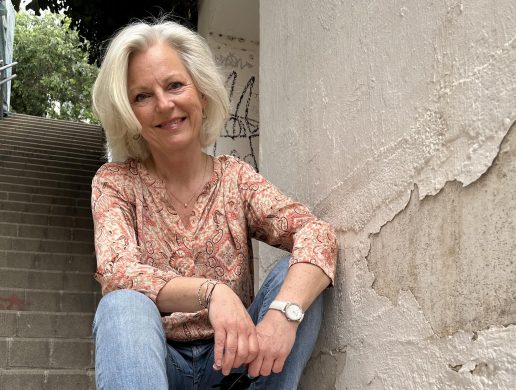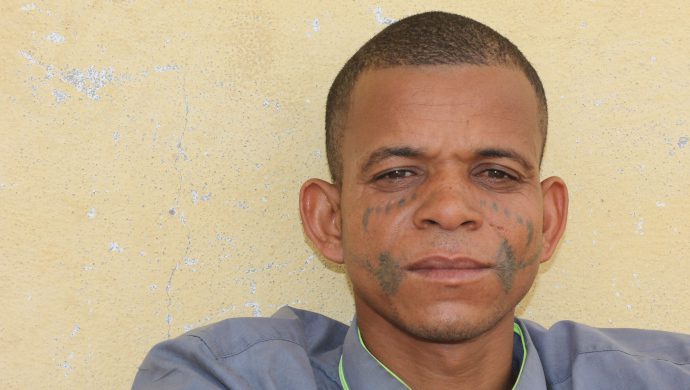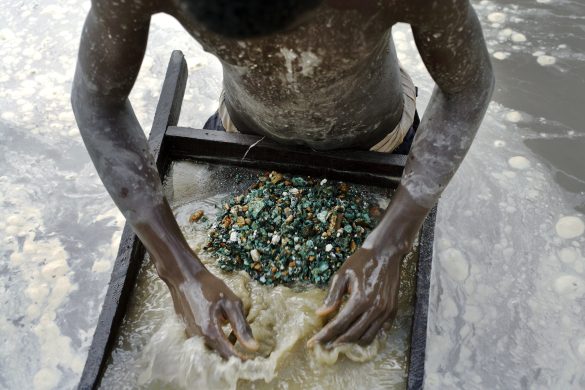“I 2030 har verdens kvinder endegyldigt vundet. Sådan ser mit ideale 2030 ud. Jeg ser for mig en verden, hvor ingen kvinder dør under graviditet eller i barselsseng, hvor alle kan få svangerskabsforebyggende midler og alle piger går i skole og selv vælger deres karriereforløb”.
Sådan siger danskeren Katja Iversen i et interview i seneste nyhedsbrev fra den globale organisation “Women Deliver” med sæde i New York.
Den 44-årige cand.comm. blev ny direktør (Chief Executive Officer) i “Women Deliver” i marts i år efter en karriere både i danske og internationale bistandsorganisaitoner.
Hun kom aktuelt fra stillingen som “Chief of Strategic Communication and Public Advocacy” hos UNICEF i New York, hvor hun opbyggede en ny afdeling fokuseret på langsigtet, politisk og strategisk kommunikation efter sin tiltræden her i juni 2013.
I interviewet får hun følgende spørgsmål:
Imagine the world in 2030 – what do you hope to see for girls and women?
Hun svarer:
When we invest in girls and women, everybody wins – and in my ideal 2030, we have won.
I envision a world where no woman dies during pregnancy or childbirth; where access to contraceptives is truly universal; where every girl is in school and able to pursue a career of her choice; and where inequality is a thing of the past. In my 2030, every girl and every woman is empowered to reach her full potential.
Spørgsmålene til hende fortsætter i artiklen her:
In this Q&A, Women Deliver’s new CEO Katja Iversen shares her motivations for becoming an advocate for girls’ and women’s health and rights; discusses lessons she has learned in her career; offers advice for emerging advocates; and describes her vision for the future for girls and women around the world.
Q: What first inspired you to become a maternal and reproductive health advocate?
I am proud to say it was my grandmother. Back in the 1930s she – in her own quiet and behind-the-scenes way – fought fiercely for girls’ and women’s reproductive rights in Denmark, where I am from. At the time, only married women could get access to modern contraceptives.
She and my granddad lived together without being married, and she worked seven days a week to get him through college, so getting pregnant just wasn’t an option. Even when she got married and had kids, she kept up the fight for all women’s reproductive rights – because it was just the right thing to do.
I always admired how my grandmother advocated for what she so passionately believed in and spent time improving the lives of women for decades to come. It is no surprise that by the time I was a teenager, she had instilled a deep sense of purpose in me.
It is partly because of her that I dedicated my career to helping to create a world where every girl and woman, no matter where she was born, can exercise her rights and be able to reach her full potential.
Q: That’s an incredibly important mission, and one that Women Deliver shares. Is that what drew you to Women Deliver?
Women Deliver has been and continues to be a powerful, driving force for girls’ and women’s health and rights. I helped plan the first-ever Women Deliver conference in London, and attended all three conferences.
I was always tremendously inspired to see such diverse groups of people – donors, policymakers, midwives, youth activists, private sector representatives, researchers and celebrities – come together to tell their stories, develop strategies for change, and show the world why investments in girls and women matter.
Looking back on the first conference, I remember late-night meetings and an incredible “can do” spirit and “all hands on deck” approach amongst everyone involved. I am a firm believer that we need all of those hands to bring about change at the global, national and community levels.
Under Women Deliver Founder & President Jill Sheffield’s incredible leadership, Women Deliver has become a trendsetter, a leader and a strong, effective advocate for girls’ and women’s health and rights.
Q: So, what is next for Women Deliver?
Well… there’s certainly no time to rest! Now is an exciting time for Women Deliver. As you know, we are much more than a conference, and we are eager to begin expanding and deepening our programs, our impact and our reach.
This means scaling up our Young Leaders program, engaging private sector partners more efficiently and effectively through our C-Exchange, and continuing to produce compelling, evidence-based advocacy materials and information to help spread the message that investing in girls and women is the smart thing to do.
Right now, we are coming out of an extensive independent evaluation, which assessed our work and its impact on the global reproductive and maternal health agenda – and we are proud of and inspired by the findings and the report.
It has high praise for the work to date, and includes opportunities and challenges for the future. We have learned a lot from the evaluation, and it will help shape our work in the years to come.
And, of course, we are gearing up for our next Women Deliver conference, which will take place in May 2016 in Europe.
We hope that this will be our largest gathering of women’s health and rights advocates and experts yet – and that it will serve as a forum for global leaders to come together and develop a roadmap for implementing the post-2015 development framework and the new Sustainable Development Goals as it relates to health and rights.
Q: We know the new goals are still under negotiation. What do you think are some of the greatest challenges and opportunities for girls’ and women’s health and rights in the coming years?
The good news is we have made remarkable strides toward improving the health and well-being of girls and women around the world in recent years.
Thanks to tremendous advocacy efforts and unprecedented commitments from donor and developing countries, maternal deaths have been halved, millions more women have access to family planning, and more girls than ever before are in school.
But our work is far from done. The way I see it, our greatest challenge is also our biggest opportunity – we must keep the momentum around girls’ and women’s health and rights alive.
This is not the time to get tired, become jaded or complacent or to turn our back on girls and women. It is time to continue pushing and fighting and advocating to ensure that these issues remain at – and climb to – the top of policy agendas at every level.
We must act now as we approach the 2015 Millennium Development Goal deadline, but also in the post-2015 world.
Each and every one of us has a pivotal role to play in continuing to deliver for girls and women. And we know that if wecommit to deliver and invest in their health and well-being, everybody will win.
Q: You mentioned that everyone has a role – what advice would you share with young people who are just entering the field of women and girls’ health and rights?
Læs videre på
http://www.womendeliver.org/updates/entry/qa-with-katja-iversen-about-her-vision-for-the-future
Se også mere om Katja Iversen i telegrammet
http://www.u-landsnyt.dk/navnenyt/nyt-job/katja-iversen-rykker-til-women-deliver


